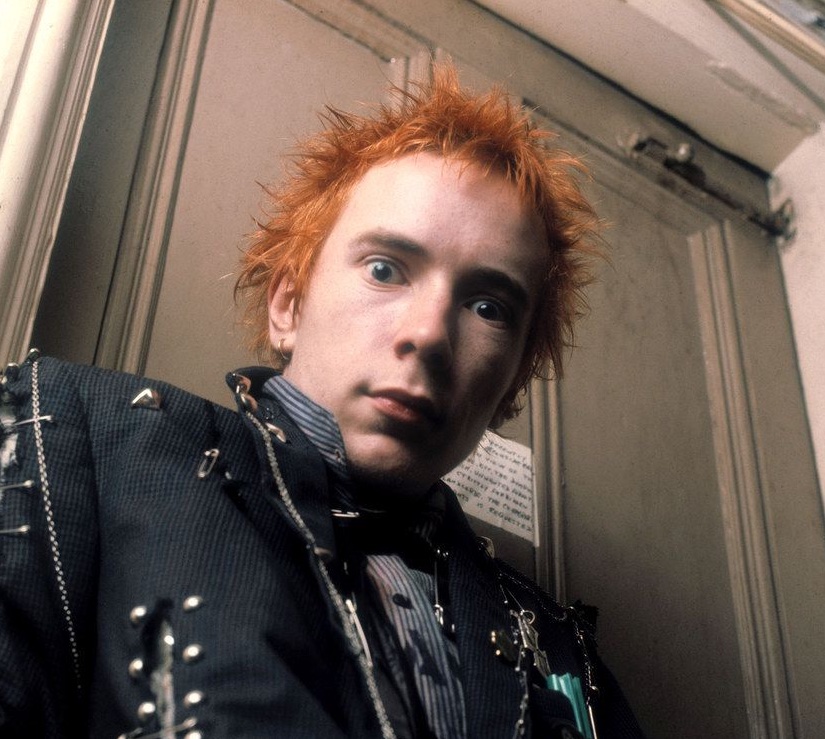
Written in one day, the cultural impact of God Save the Queen can’t be understated. Its story is one of fallout, violence, and desperate censorship from a pro-monarchy status quo.
“God save the Queen/A fascist regime!”
Even now a song beginning like this would court plenty of controversy and invite an avalanche of opinion pieces and angry tweets, but 45 years ago some people were so incensed they were ready to resort to violence.
1977 marked the Queen’s Silver Jubilee, celebrating the 25th anniversary of the monarch’s accession to the throne, but also coinciding with the eruption of punk. And among the bands at the forefront were, of course, the Sex Pistols.
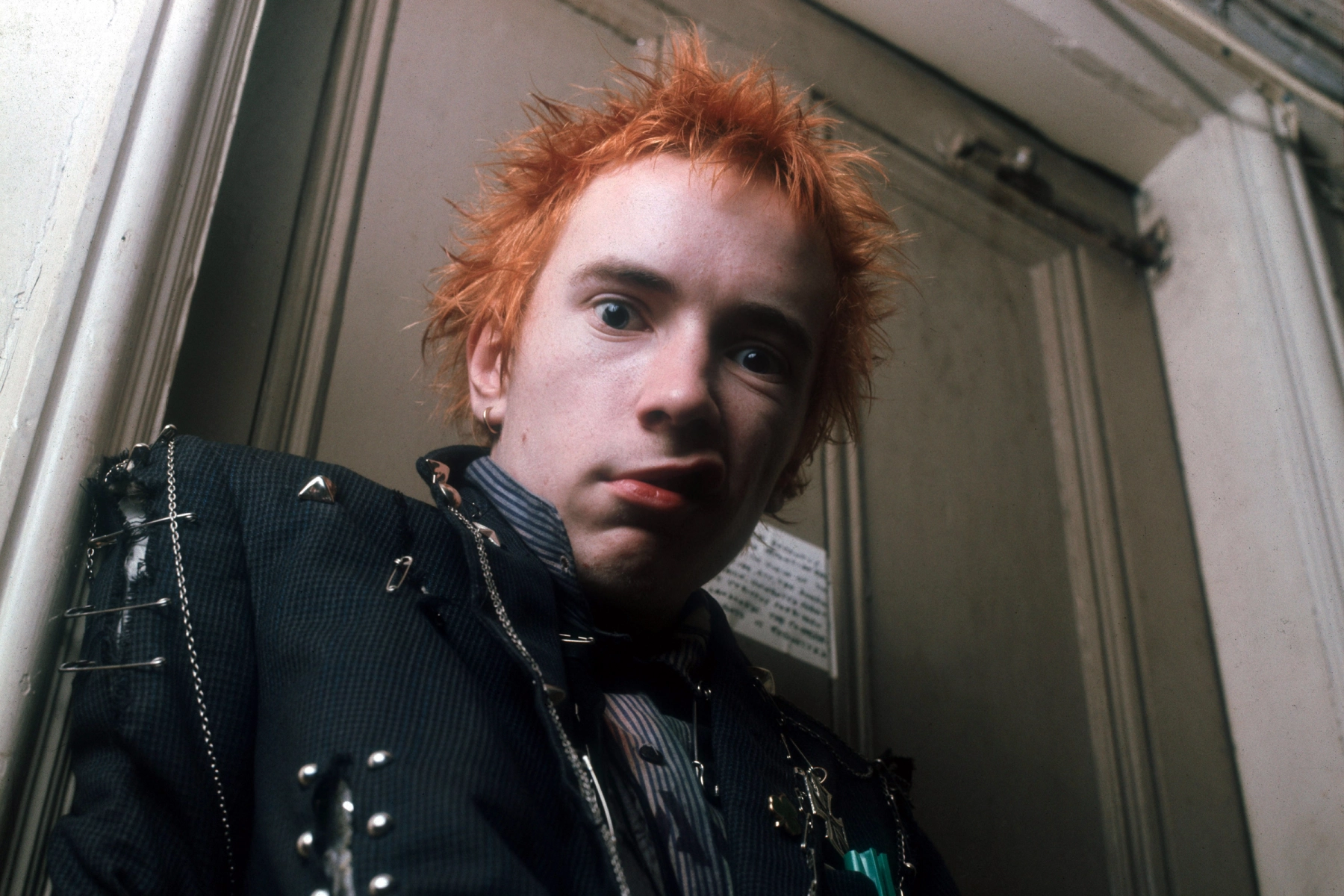
John Lydon, in his Sex Pistols days when he was known as Johnny Rotten
Described as ‘the band you love to hate’ in a review by the Reading Evening Post and ‘leaders of the new punk rock cult’ in a now-infamous Daily Mirror headline after that Bill Grundy interview, almost everything the Sex Pistols did was controversial. But that was exactly the point.
It would probably be a stretch to say that they truly believed in all of their lyrics. And for that matter, how much of what they did was down to manager Malcolm McLaren? One criticism sometimes retrospectively levelled at the band is that they were ‘manufactured’. When considering their origins, that’s not entirely true, but at the same time, it would be futile to play down the influence of McLaren and his then-partner Vivienne Westwood.
Going back to the early ‘70s, the band that would later evolve into the Sex Pistols was called The Strand and comprised Steve Jones, Paul Cook, and Wally Nightingale. One of their regular haunts was McLaren and Westwood’s shop, renamed in 1974 as ‘SEX’, and in the same year, McLaren began to manage The Strand, taking on Glen Matlock as the band’s bassist.
After spending time in the US with the New York Dolls, McLaren came back to London in 1975 and decided to work with The Strand more closely. Meanwhile, The Strand was developing under the watchful eye of McLaren’s associate Bernie Rhodes, and around this time, they took on the name QT Jones and the Sex Pistols with Jones the frontman. Soon, however, Jones moved to guitar, and McLaren would be on the lookout for a new lead vocalist.
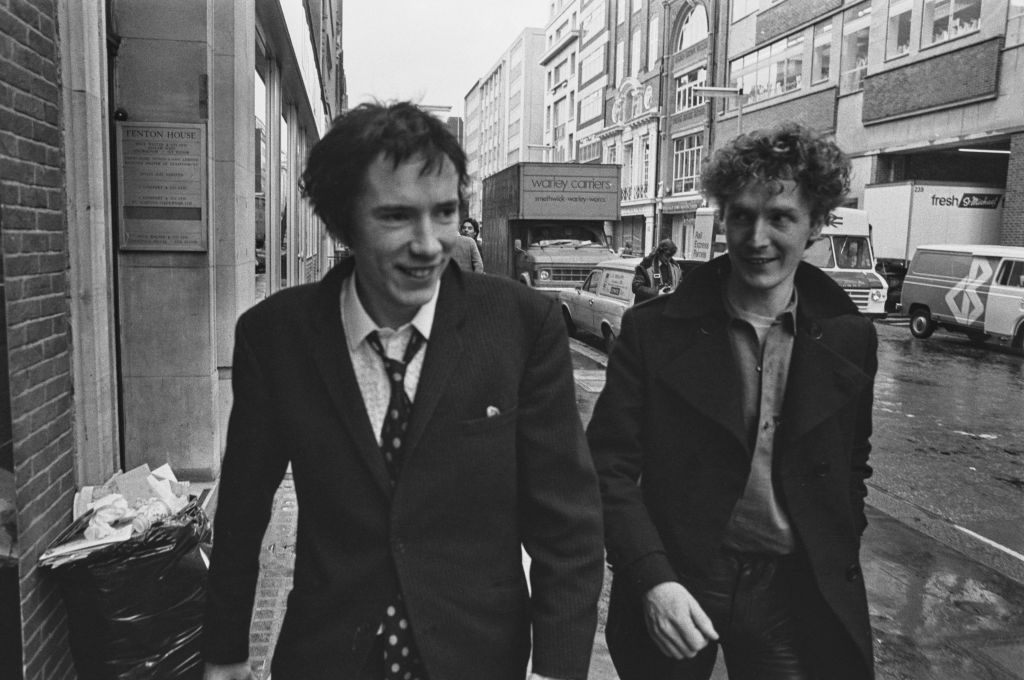
1977: Johnny Rotten leaving Malborough Street Court in London after being fined for possessing illegal substances, walking with his manager Malcolm McLaren. (Photo by Evening Standard/Hulton Archive/Getty Images)
It’s difficult to imagine the Pistols sans Johnny Rotten, but it could have been all so different. McLaren approached Sylvain Sylvain of the New York Dolls to front the band, as well as Midge Ure, but both turned him down before Rhodes saw a 19-year-old John Lydon that August.
As the now almost legendary tale goes, Rhodes saw Lydon wearing a Pink Floyd T-shirt with “I hate” written above the name of the band, and he was then invited to meet Cook and Jones at a nearby pub. After a couple of Alice Cooper renditions, he was in.
Shortly after the band released debut single ‘Anarchy In the UK’, which got to number 38 in the charts, the band appeared on the Today programme, hosted by Bill Grundy, replacing EMI labelmates Queen at the last minute. After Jones called Grundy a “sod”, a “bastard”, a “dirty fucker” and a “fucking rotter”, the band became household names overnight and sent the tabloids into a frenzy.
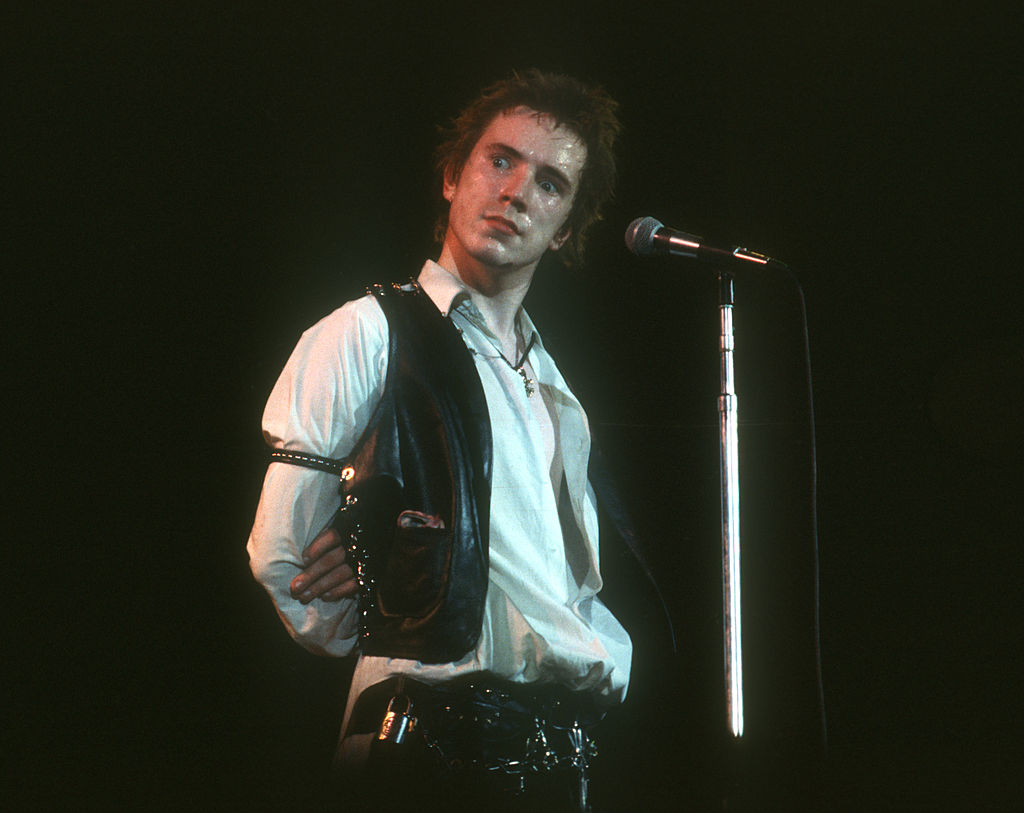
The Sex Pistols perform their last concert in Winterland on January 14, 1978 in San Francisco, California. (Photo by Michael Ochs Archives/Getty Images)
In the following few months, many of their gigs would get cancelled – and in some cases protested against – while packers at EMI would refuse to handle the single, and they’d later get dropped by their label. Come February 1977, Matlock would leave the band, replaced by inexperienced bassist and erstwhile The Flowers of Romance vocalist Sid Vicious.
According to Jones, it was himself and Matlock who wrote the majority of the music, describing ‘God Save the Queen’ as being “basically Glen’s riff” in Jon Savage’s The England’s Dreaming Tapes. For Lydon’s part, he told Savage that he wrote the lyrics to ‘God Save the Queen’ while squatting with Sid Vicious, writing it all in one go.
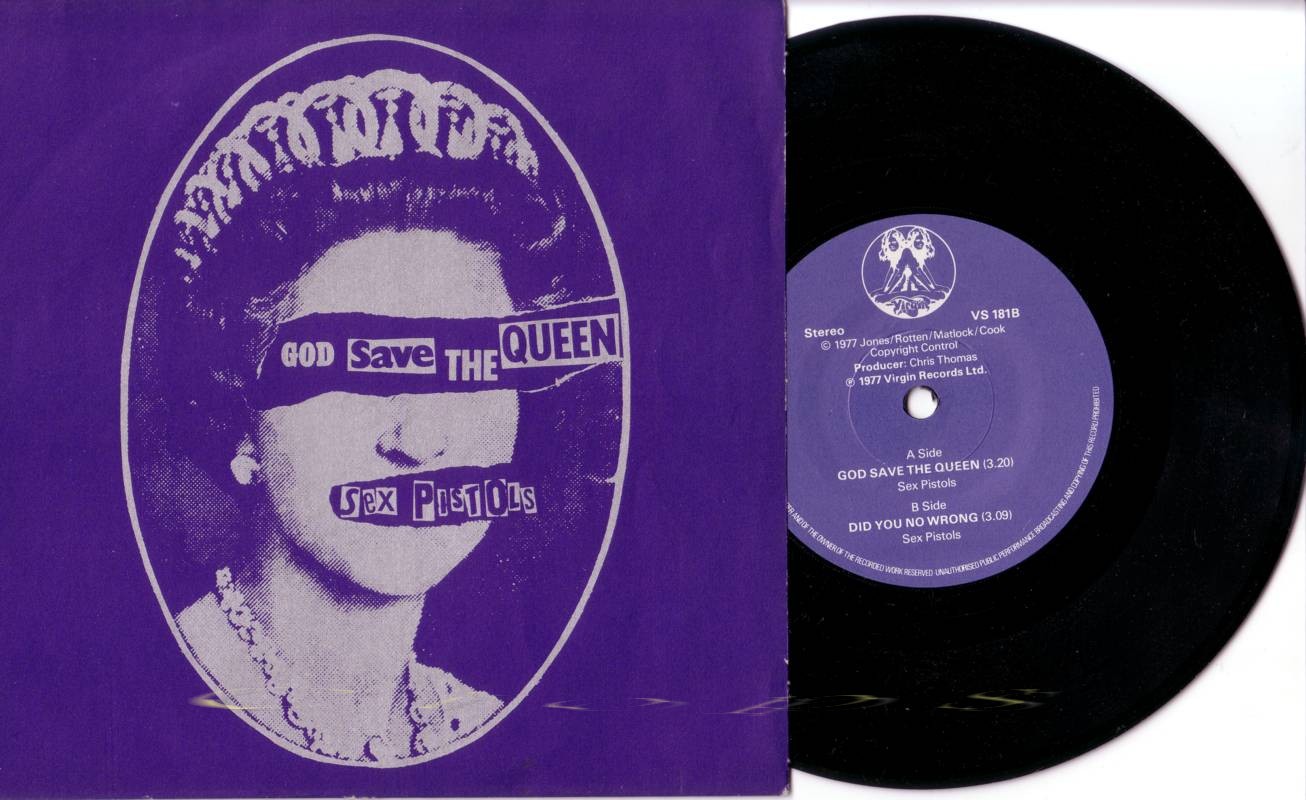
The song was originally called ‘No Future’, but as Matlock was kicked out of the band and replaced by Vicious, the name ended up being changed too – to something altogether more ‘in-your-face’ and combative. The now-iconic artwork was designed by anarchist artist Jamie Reid, who designed a great deal of cover art for the band.
The Sex Pistols signed to A&M Records on 10 March, but after courting controversy at the record label’s offices, they were released less than a week later – 25,000 copies of ‘God Save the Queen’ had already been pressed, but were duly destroyed. Come May, the band would sign with Virgin Records, but employees at the pressing plant refused to work and the makers of the record sleeve were also offended by Reid’s design.
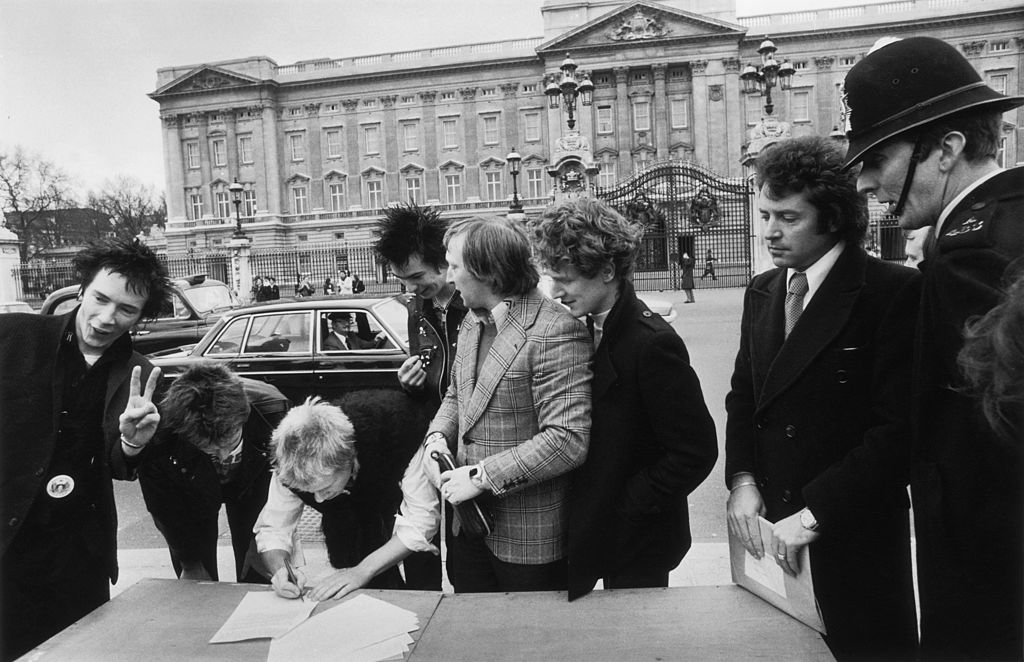
10th March 1977: The Sex Pistols with their manager Malcolm McLaren (third from right) signing a new contract with A&M Records outside Buckingham Palace, London after being dropped from EMI. The contract was terminated a week later. From left: Johnny Rotten (aka Lydon), Steve Jones, Paul Cook and Sid Vicious (1957 – 1979). (Photo by Graham Wood/Evening Standard/Getty Images)
‘God Save the Queen’ was released on 27 May, and less than two weeks later on 7 June – the Jubilee holiday itself – the band tried to play the single while on a boat, the Queen Elizabeth, in the River Thames. This resulted in a fight involving a cameraman and future Public Image Ltd bassist Jah Wobble, and the arrest of eleven people including McLaren.
Upon release, ‘God Save the Queen’ would peak at second place in the charts, but even now a debate rages over whether they were denied of their rightful place at the top of the charts. Rod Stewart’s ‘I Don’t Want to Talk About It’, a double A-side with ‘The First Cut Is the Deepest’, was said to have made it to No. 1, at the Pistols’ expense, but the NME had ‘God Save the Queen’ in first place, and in a 2001 article even the BBC itself referred to the single as having reached the top of the charts.
The reaction to the single was mixed – and in some cases violent. Lydon and producer Chris Thomas were attacked in a pub car park while it was in the charts to chants of “We love our Queen, you bastards!”. Around the same time, Cook was attacked with iron bars in Shepherd’s Bush tube station, and it would be fair to say that they were considered the antithesis of good manners and civility by quite a sizeable proportion of the population.
Of course, the controversy didn’t end with ‘God Save the Queen’. Later that year, the band released their debut album Never Mind the Bollocks, which was banned by Boots, WHSmith and Woolworths, and even prompted a legal case after a Virgin Records store was accused of displaying “indecent printed matter”. Three months after the album’s release, and after a disastrous American tour, the Sex Pistols broke up.
Were the Sex Pistols meant to have longevity? They’re perhaps all the more iconic because of their short-lived history. Lydon was to form Public Image Ltd, develop a more experimental sound, and have a whole load of success, but the cultural impact of the Sex Pistols and of ‘God Save the Queen’ can’t be understated. It’s not a stretch to say that, were it not for the both of them, we’d be living in a rather different United Kingdom today.

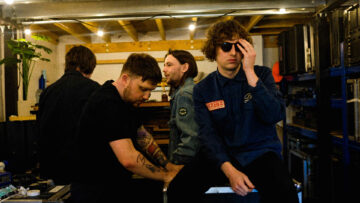



1 Comment
Brtilliantly insightful write up.